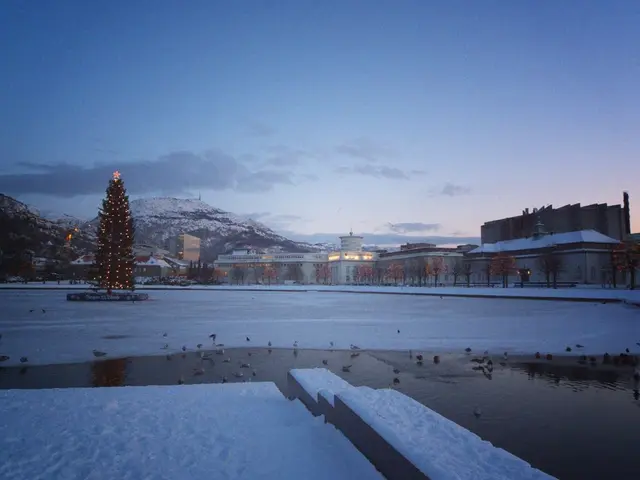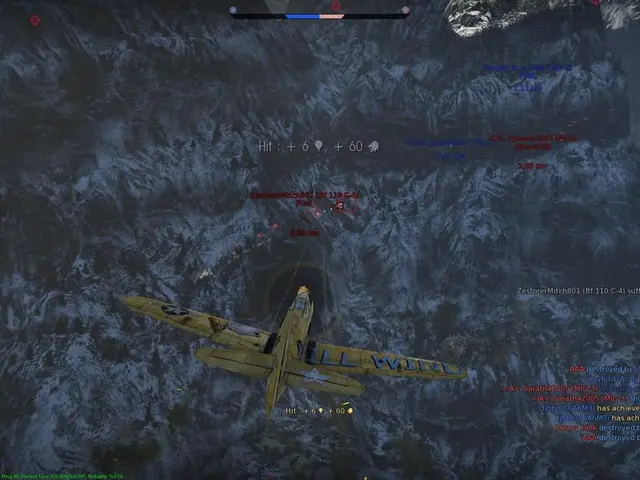General Assimi Goïta, military leader in Mali, seeks extended rule without contest.
Going for Round Two: General Assimi Goïta's Stretch for Power in Mali
After five years of military rule, General Assimi Goïta is eyeing another five years as the head of Mali. If successful, he would have served longer than the typical presidential term, all while the citizens of Mali had the chance to vote for their leaders.
On April 29, a panel consisting of Malian society representatives, handpicked by the authorities and without major political parties present, recommended that General Goïta be appointed as the "President of the Republic" for a five-year term starting from 2025, renewable. The panel also suggested suspending all electoral issues until the country is pacified and dissolving all political parties to toughen creation conditions.
These suggestions, stemming from the "National Refoundation Forum" organized by the junta towards the end of 2022, will now be considered by Goïta. Should he go ahead with this, he would be following in the footsteps of his counterparts in Burkina Faso and Niger, who, like him, are part of the Alliance of Sahel States, and have, respectively, done the same in May 2024 and March 2025.
General Assimi Goïta's reign in Mali has been synonymous with military rule consolidation and prolonged political transitions since he first seized power in the 2020 coup. Following his overthrow of President Ibrahim Boubacar Keïta, Goïta carried out a second coup in 2021 against the interim civilian-military government, appointing himself as transitional president. Despite initial promises to restore democracy through elections by 2022, his regime has continued to delay elections, citing security concerns linked to ongoing insurgencies in northern and central Mali.
Recent developments hint at a formalization of military governance:- Extended Presidency: A regime-backed national conference (boycotted by major opposition groups) suggested amending Mali’s transitional charter to grant Goïta a five-year renewable term starting in 2025, potentially extending his rule to 2030, similar to his junta-led Sahel State counterparts in Niger.- Party Dissolution: The conference recommended dissolving all 297 existing political parties and imposing stricter criteria for new ones, possibly signaling a return to one-party rule reminiscent of Mali’s pre-1991 dictatorship.- Election Suspension: Participants called for halting elections until “peace is restored,” indefinitely postponing democratic processes.
In the event of a second term without elections, the implications could be severe:1. Democratic Backsliding: Opposition figures warn that dismantling multi-party politics could erase three decades of post-dictatorship democratic gains, with Amnesty International condemning the party dissolution proposal as an attack on freedom of association and expression.2. Regional Alignment: The move mirrors governance strategies of Mali’s AES allies (Burkina Faso, Niger), signaling a coordinated rejection of Western-backed democracy in favor of militarized authoritarianism.3. Security Focus: Goïta’s regime prioritizes combating jihadist insurgencies over political reforms, exploiting prolonged instability to justify extended military rule. Critics argue this approach perpetuates cyclical violence without addressing governance failures.
The proposed changes risk isolating Mali further from West African partners like ECOWAS while deepening dependence on Russia and Sahelian juntas for security and political legitimacy.
- General Assimi Goïta, currently eying another five years as the head of Mali, aims to continue his rule till 2030 if the suggested amendment to his transitional charter is accepted, as sanctioned by a regime-backed national conference.
- In line with his counterparts in Burkina Faso and Niger, Goïta's proposal includes dissolving all political parties, potentially leading Mali back to one-party rule, reminiscent of its pre-1991 dictatorship.
- The suspension of elections, recommended by the conference, could indefinitely postpone democratic processes in Mali, triggering a wave of democratic backsliding, according to opposition figures.
- Amnesty International has criticized the party dissolution proposal, viewing it as an attack on freedom of association and expression, similar to the tactics of militarized authoritarian regimes in the war-and-conflicts sector.
- As political consultations surrounding Goïta's future presidency and the restructuring of Mali's policy-and-legislation continue, there are concerns that ongoing tensions with Western partners like ECOWAS will escalate if these proposed changes materialize, potentially deepening Mali's dependencies on Russia and Sahelian juntas for political legitimacy within the general-news sphere.








